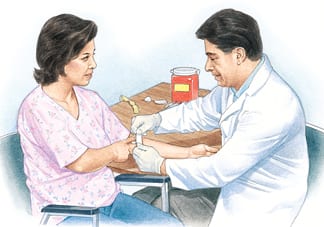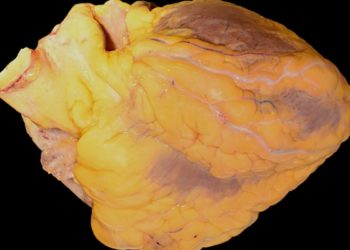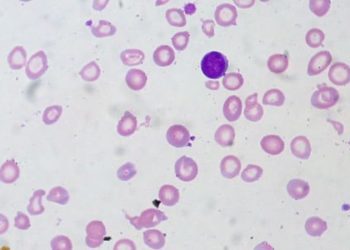Patient Basics: Iron Deficiency
Originally published by Harvard Health.
What Is It?
Iron deficiency is an abnormally low level of iron in the body.
Iron is an essential mineral found in red meat and certain fruits and vegetables. In the body, iron is needed to form myoglobin, a protein in muscle cells, and it is essential for certain enzymes that drive the body’s chemical reactions. In the bone marrow, iron is used to make hemoglobin, the oxygen-carrying chemical inside the body’s red blood cells. If iron levels fall too low, it causes iron deficiency anemia. When this happens, red blood cells become smaller than normal and contain less hemoglobin.
Iron deficiency can occur in infants, adolescents and pregnant women because of the heavy demands for iron associated with rapid body growth. Iron deficiency is especially common in premenopausal women because of regular loss of iron with menstrual periods.
Iron deficiency also can happen because of any of the following:
- An inadequate diet
- Poor absorption of iron resulting from the surgical removal of part or all of the stomach or intestine
- Inflammatory bowel disease
- An intestinal disorder called celiac sprue
- Chronic blood loss caused by any of the following:
- Abnormally heavy menstrual periods
- Bleeding into the urine, which is rare, or into the gastrointestinal tract, which is common; often, the blood loss is so small, it can only be detected with special testing
- Excessive blood donation
- A parasitic hookworm infestation
Symptoms
Mild iron deficiency may not cause any symptoms. When iron deficiency has progressed to actual anemia, there can be fatigue, breathlessness, unusually pale skin, and a decreased ability to exercise. People who have had severe iron deficiency for a prolonged period sometimes complain of trouble swallowing or have a sore mouth or tongue. In some cases, there can be unusually brittle fingernails or an abnormal curling and softness of the nails called spooning.
Diagnosis
Your doctor will ask about your diet and symptoms, including any signs of abnormal menstrual, rectal or urinary tract bleeding. Your doctor will examine you to check for unusual paleness in your skin and fingernails, and for other nail abnormalities. He or she may examine your rectum to see whether blood is being lost in the gastrointestinal tract.
The main test used to diagnose iron deficiency is a blood test called a complete blood count (CBC). If there is still doubt about the cause of anemia after a CBC, further testing may include checking the blood levels of iron and ferritin, a protein that binds iron in the blood, which may more accurately reflect the body’s iron levels.
When abnormal iron loss is suspected because of bleeding, additional tests will be ordered to check for blood in the stool or urine, and to identify the cause of the blood loss. In women with abnormally heavy menstrual bleeding, a full gynecological exam and often other tests may be necessary.
Expected Duration
Iron deficiency will last as long as its cause persists. Iron supplements taken by mouth begin increasing the body’s production of red blood cells within three to 10 days. Iron usually needs to be taken for many months to bring the levels back to normal.
Prevention
You can prevent iron deficiency by eating a well-balanced diet that includes lean meat, green vegetables, beans, fruits and whole grain bread. Pregnant women and growing children are especially susceptible to insufficient dietary iron intake. Pregnant women usually are advised to take an iron supplement.
Treatment
Iron deficiency usually is treated with iron tablets, syrups (for children) or injections. If iron deficiency was caused by abnormal blood loss, the cause of bleeding also must be diagnosed and treated.
When To Call A Professional
Call your doctor whenever you have any of the symptoms of iron deficiency anemia. If you have abnormal bleeding, such as blood in your stool or excessively heavy menstrual periods, call your doctor immediately.
Prognosis
After about six months of daily iron tablets, the body’s iron stores usually will return to normal in an average adult who has had an iron-poor diet. When this doesn’t happen, it is often because the person has not taken iron tablets as directed or because iron loss due to abnormal bleeding exceeds the amount of iron taken in. Many people stop taking iron tablets because iron irritates the gastrointestinal tract or causes constipation.
Additional Info
National Heart, Lung, and Blood Institute (NHLBI)
P.O. Box 30105
Bethesda, MD 20824-0105
Phone: (301) 592-8573
TTY: (240) 629-3255
Fax: (301) 592-8563
http://www.nhlbi.nih.gov/









